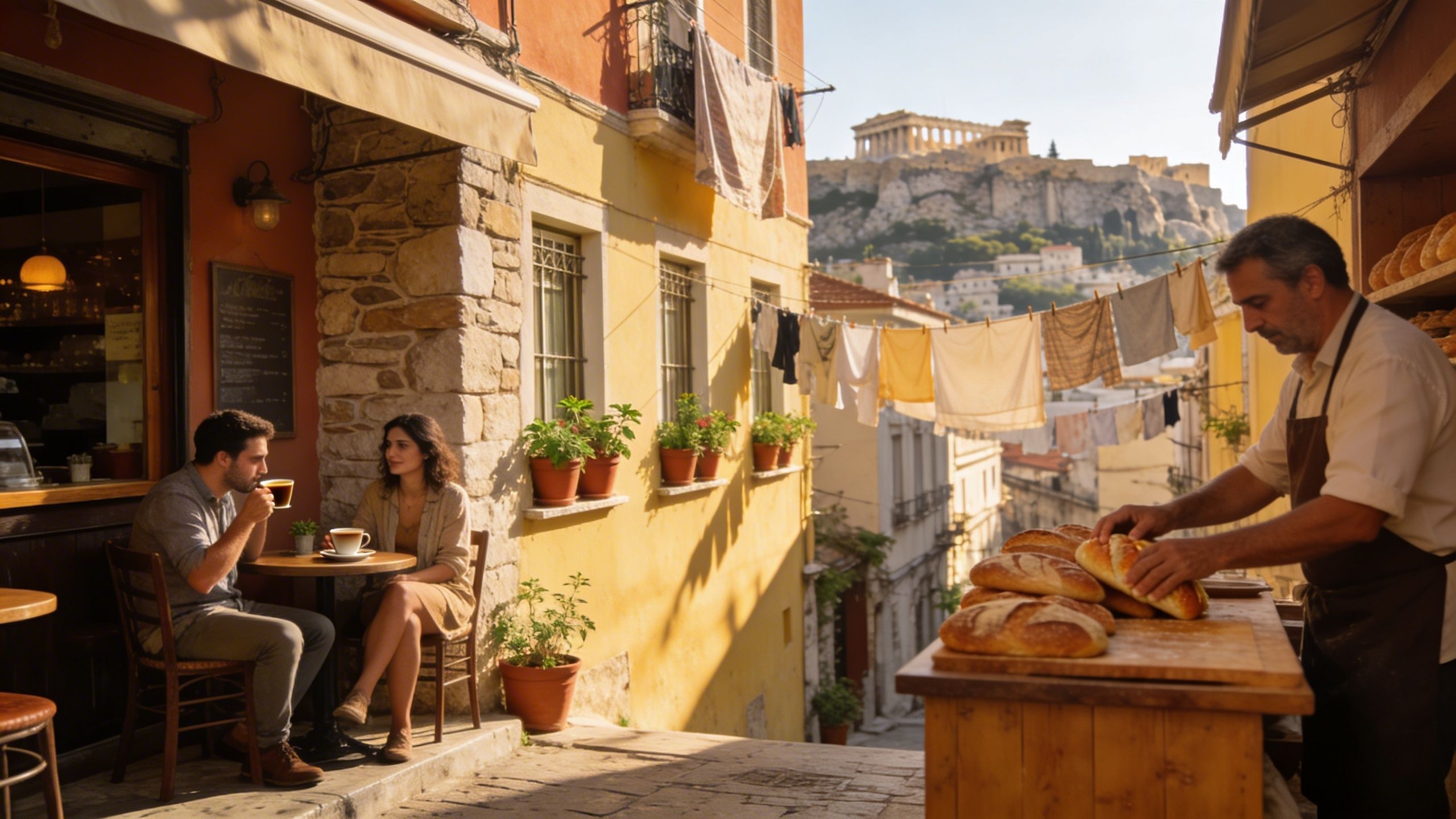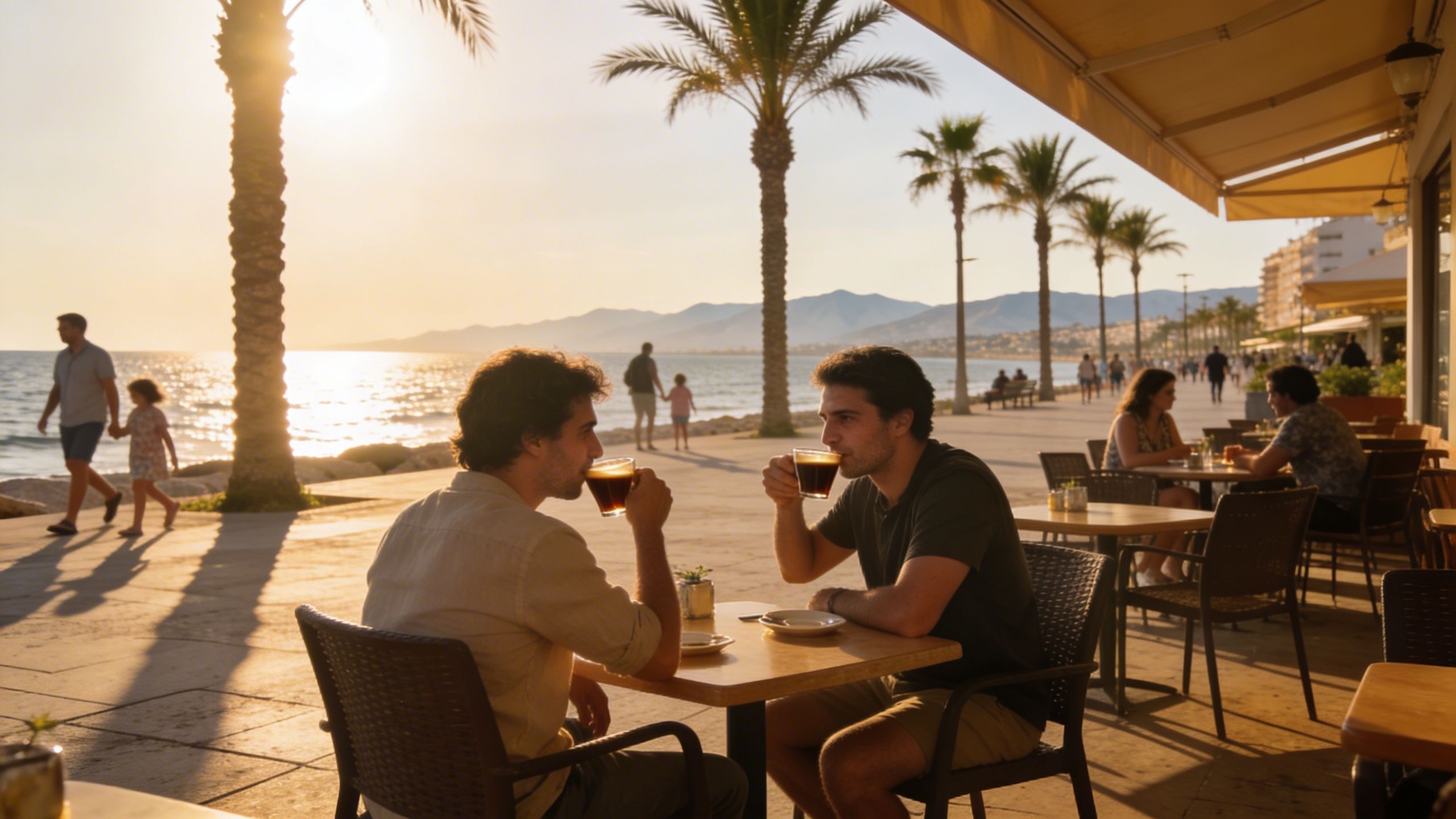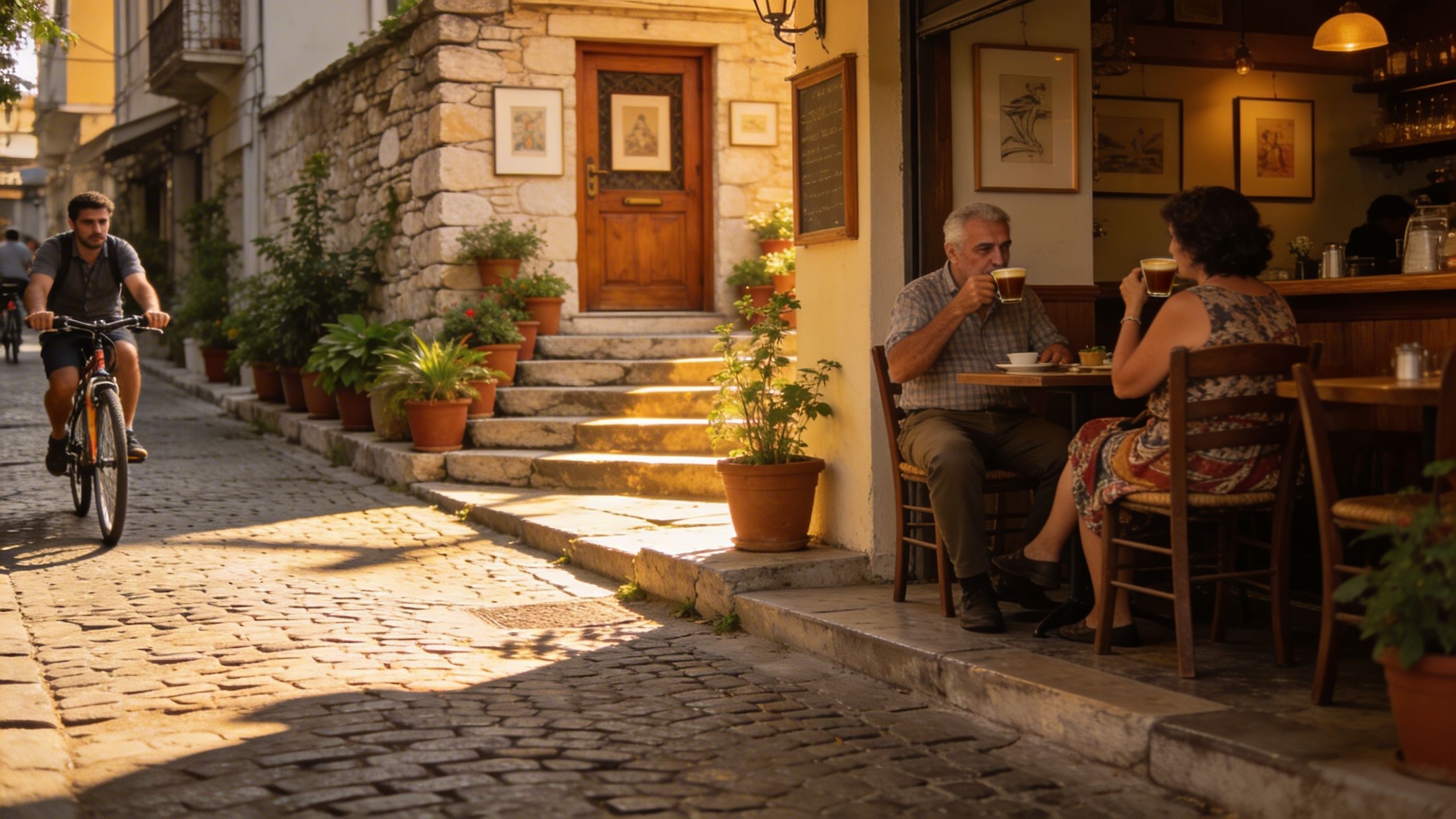Greece: Love the Life—Secure the Land
Fall for Greece’s light—but secure it: confirm cadastre entries, building permits and seasonal realities to protect lifestyle and investment.
Imagine waking to the smell of espresso and sea salt, wandering a morning market in Chania with figs still warm from the sun, then stepping into a stone-walled house where the terrace faces a wild olive grove. This is Greece: an easy rhythm of light and sea, village squares that hold conversation long after shops close, and neighborhoods where concrete meets vine and thyme. For international buyers drawn by this sensory life, due diligence and permits can feel like the necessary choreography that lets the dream take root—done well, they protect the view, the garden, and the quiet future of your home. According to recent Hellenic Cadastre guidance, registration and clear title are core to that protection.
Living the Greece life: where atmosphere meets purchase
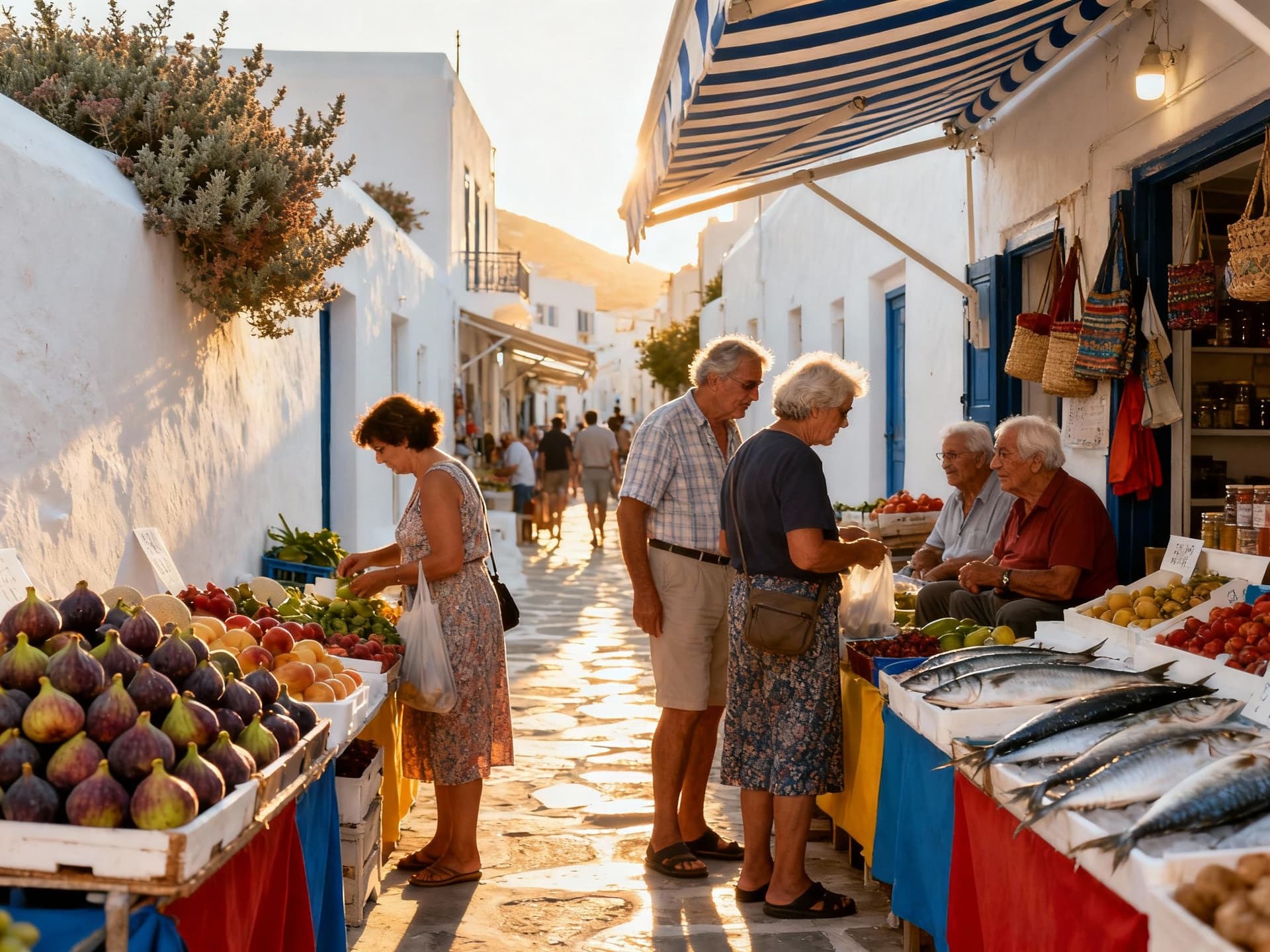
Greece is both island romance and lively city life. In Athens, neighborhoods like Koukaki and Pangrati hum with cafés, evening strolls and restored neoclassical buildings; on the islands, places such as Fira (Santorini) and Hora (Naxos) frame daily life around terraces, fishing harbors and early‑morning markets. The property you buy is not just walls and a roof—it's a front row seat to olive harvests, taverna nights, and the seasonal cascade of life that shapes how a home is used and maintained.
Neighbourhood spotlight — Athens: Koukaki to Anafiotika
Picture morning runs past the Acropolis, coffee at a sunlit kafeneio, and renovation projects that keep original stone, wooden shutters and high ceilings. Koukaki’s narrow streets reward walkers; Anafiotika keeps that island‑like quiet just beneath Athens’ bustle. For buyers, this means seeking properties with retained character but updated utilities—expect to ask for electrical rewiring certificates and up-to-date EPCs when you view.
Island life: the trade of peace and maintenance
On islands such as Paros or Kefalonia, mornings begin with fishermen hauling nets and afternoons thin into languid café conversation. But island homes often carry practical quirks: cisterns instead of mains water in remote coves, septic systems, and stricter planning rules inside archaeological or coastal zones. If you fall in love with a stone cottage on a headland, include a permit‑check for shoreline setbacks and public access obligations in your earliest enquiries.
- Lifestyle highlights to look for (and why they matter): • Morning market in Chania’s Agora — healthy local food and an easy social life • Koukaki’s kafeneia and rooftop bars — urban convenience with neighborhood intimacy • Wild olive groves and nearby hiking trails — opportunities for regenerative landscaping • Small local taverna with vegetable garden — community integration and seasonal produce • Local ferry link or regional airport — practical access for long‑term stays • Village church square (plateia) events — key to local social rhythm and community ties
Making the move: practical considerations that protect the lifestyle
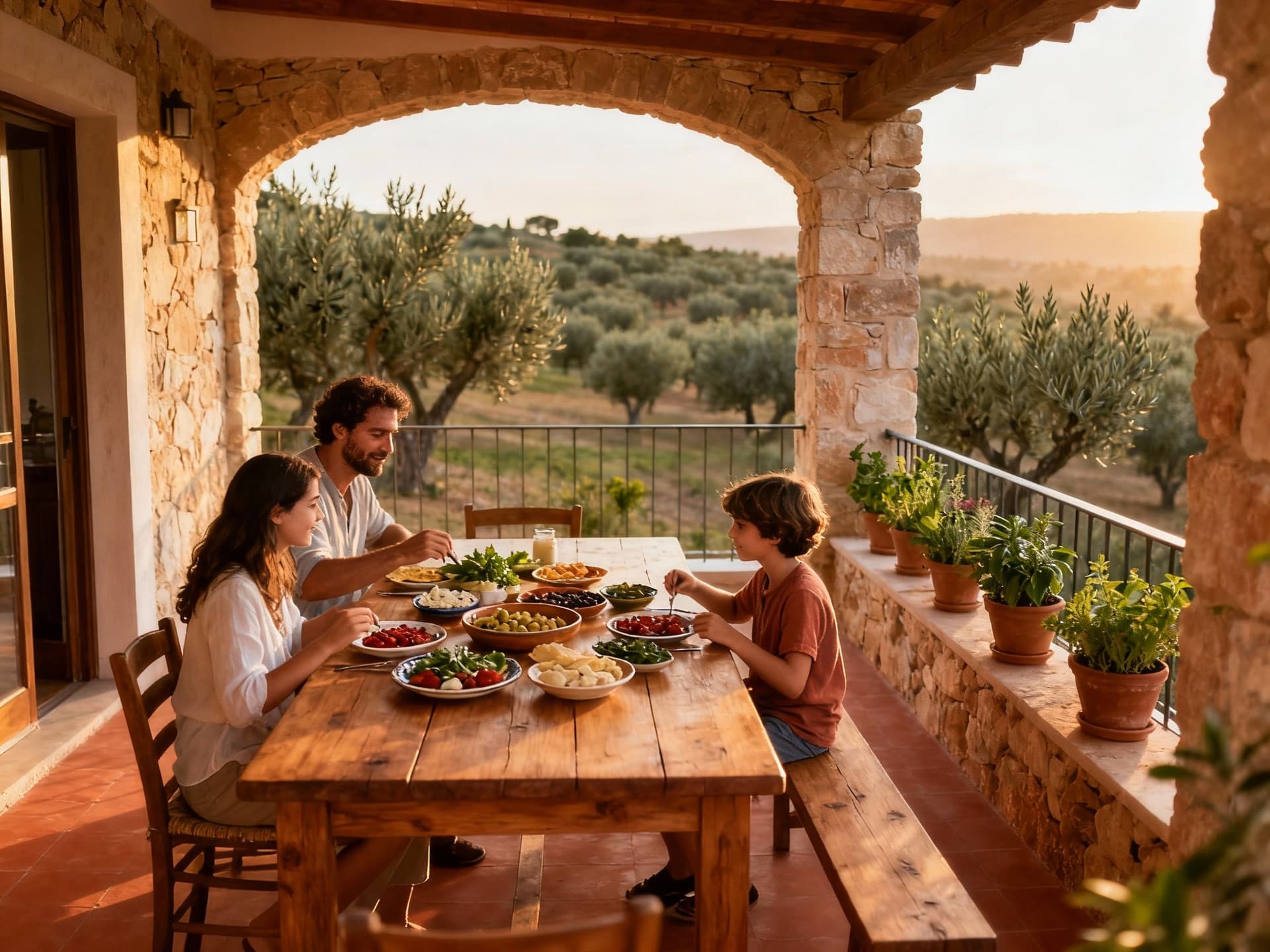
The romance of a Greek life must be balanced with paperwork that secures it. The Hellenic Cadastre (Ktimatologio) is central: registration there clarifies ownership, encumbrances and exact parcel boundaries. Many disputes arise from unclear land boundaries or unregistered changes; a thorough cadastre search and local lawyer review are the quiet guardians of your sea view and olive trees.
Property types & what they mean for living well
Traditional stone house: charm, thick walls and passive cooling — but check the roof, damp proofing and electrical safety. Modern villa: easier certification for solar panels and insulation, but confirm planning permissions for extensions. Apartment in a listed neoclassical: gorgeous detail, stricter renovation rules; you may need archaeological permits for structural work.
Working with local experts who keep the lifestyle intact
- 1. Hire a Greek‑qualified lawyer to perform title and cadastre searches and to prepare the notarial deed. 2. Commission a civil engineer or architect to confirm building permits (oikodomikes adeies) and to flag illegal additions. 3. Ask for utility certificates and energy performance information; where missing, budget for upgrades. 4. Use a local agent who knows seasonal life—who can tell you when the village comes alive and when maintenance windows are easiest. 5. Confirm local municipality rules on solar installations, cisterns, and water usage before planning changes.
Insider knowledge: red flags, seasonal rules and cultural nuances
A few hard lessons from expats: properties marketed as "rural idylls" sometimes sit on land with complex rights (communal grazing, reforestation plans, or cadastral disputes). Golden‑visa driven listings can inflate prices in some areas – read the backstory and check whether a property’s appeal is seasonal. Recent reporting shows increased scrutiny of residency-by-investment schemes; treat any price premium tied to a visa scheme as negotiable and always confirm legal thresholds with a lawyer.
Cultural quirks that affect buying and living
Neighbors value reciprocity: help in the garden, shared platters at the plateia, small favors. These social currencies smooth planning permissions and repairs. Learn a few Greek phrases, attend local festivals, and respect seasonal rhythms (many workshops close in August). For many buyers this social capital is as valuable as an updated roof.
- Common red flags to spot early: • No cadastral entry or unclear plot boundaries — demand the Ktimatologio extract. • Missing building permits for extensions — commission an architect check. • Unpaid municipal charges or utility debts — request clearance certificates. • Overly glossy listing photos hiding steep access roads or erosion risk — visit in different seasons. • Price premiums tied to residency schemes — verify legal eligibility and current thresholds.
Step-by-step due diligence checklist
- 1. Ask seller for the deed and current extract from the Hellenic Cadastre. 2. Instruct a Greek lawyer to search for encumbrances and confirm seller identity. 3. Commission an engineer to verify that built surfaces match permitted plans. 4. Request evidence of paid municipal and tax obligations; obtain a tax clearance (for the property). 5. Ensure the notarial deed includes exact cadastral parcel numbers and follow through with registration.
Living in Greece changes you. You slow down; you learn to time projects around olive harvests and festivals. Done with care, your purchase becomes a partnership with place: a stone house that stores summer warmth, a garden that feeds you, and neighbours who become family. Practically, hire the right local team, insist on cadastre clarity, and plan for seasonality. Emotionally, come with curiosity and a readiness to steward land and community.
If you’re ready to explore properties that honor landscape and community, start by asking sellers for cadastral extracts and a clear list of permits, and book a local lawyer before making an offer. Moss & Hearth’s network can connect you with specialists who pair conservation‑minded restoration with legal certainty—so your Greek home is not just a purchase, but a long, flourishing relationship with place.
British expat who traded Manchester for Mallorca in 2017. Specializes in guiding UK buyers to luxury Spanish estates with clear navigation of visas and tax.
